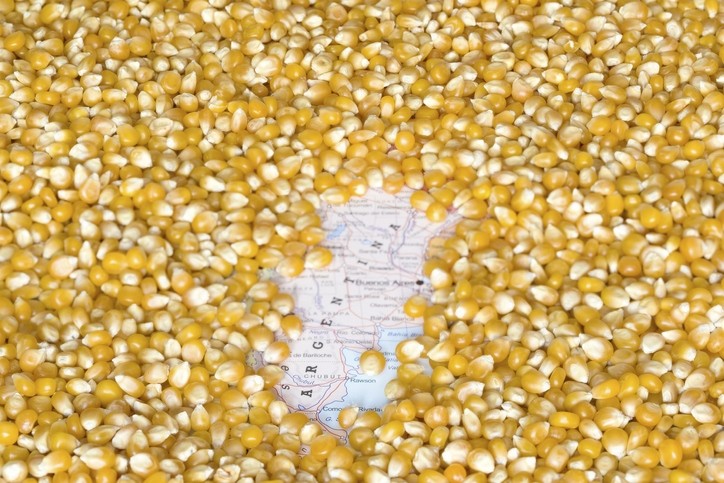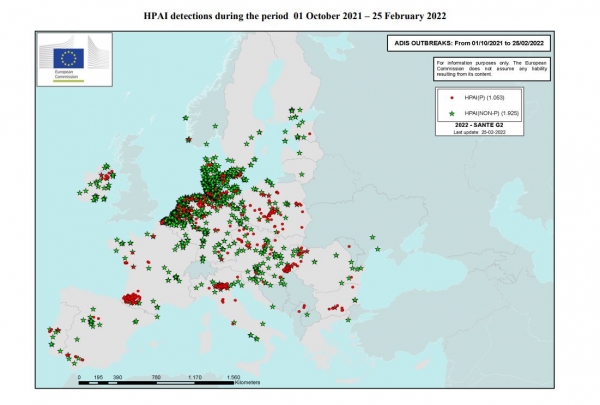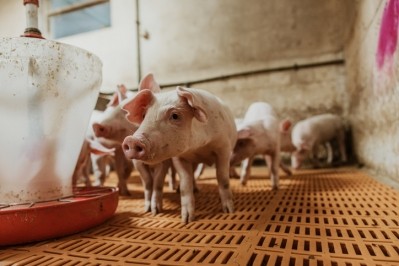What contingency plans will help mitigate loss of Black Sea origin maize in EU feed?

“Market reports indicate sufficient maize stock levels in both North and South America. All partners in the [feed] value chain are checking logistical options to channel alternative origins to the EU and other destinations, certainly to try and prevent disruption in the more exposed markets: Portugal, Italy, Spain, and Cyprus,” said Asbjørn Børsting, FEFAC president.
The trade group also highlighted the critical importance of ensuring supply of feed maize deliveries to Southern European ports.
The Black Sea region represents an important supply of grains and oilseed products for the world market. For Europe, maize represents the main imported product from Ukraine with a yearly average of 11 million tons.
Spain, a major buyer of feed corn from Ukraine, announced yesterday [March 14] that it would approve emergency purchases of corn from Argentina for animal feed, Reuters reported.
Argentina is the world’s second-largest corn exporter behind the US.
Spain had been pushing the EU Commission to waive import controls, and on Friday last, March 11, EU officials authorized member states to lift some technical restrictions linked to the existing maximum pesticide residue limit for feed with "full guarantee and safety of the agri-food trade," said Luis Planas, agriculture minister of Spain.
Food and feed security
Reacting to last week's Versailles declaration and the March 9 meeting of the European Food Security Crisis Preparedness and Response Mechanism (EFSCM), Børsting said the EU needs to establish a comprehensive food and feed security contingency plan, prioritising food and feed use of grains and oilseeds, both in the short-term, given the loss of Black Sea grain deliveries, but also in the mid-term, as the impact of Russia's invasion, he said, will be felt for a long time.
"The EU needs to support innovative plant breeding technologies and good agricultural practices to boost its own grain, oilseeds and vegetable protein production," added the FEFAC lead.
Disease, increasing uncertainty
Supply chain shortages, coupled with the significant market uncertainty, could lead to accelerated culling of livestock herds and flocks in the EU, Børsting told FeedNavigator. “Farmers don’t have any visibility on how the markets are going to play out over the next few weeks and months.”
European pig producers, in particular, have been challenged in relation to higher input costs, he noted.
“The market situation in the pig sector has been difficult for the past few months, since the beginning of the global grain market rally, due to loss of export markets, African swine fever (ASF) and pig prices being too low to cover the extra feed costs."
The EU dairy sector has seen more favorable market conditions, allowing for at least a partial compensation of higher feed costs, he said.
“The poultry sector is still very much affected by the avian influenza (AI) situation. Southern European poultry producers are more impacted than their Northern European counterparts, as they rely on a higher maize inclusion in their poultry feeds,” commented the FEFAC president.
Bird flu spread
The highly contagious H5N1 strain of avian influenza has been spreading quickly in Europe in recent months, resulting in massive culls in several countries. France is to slaughter several million poultry birds in the second mass cull of flocks this winter as the country tries to contain outbreaks of avian influenza, the farming ministry said last week.













